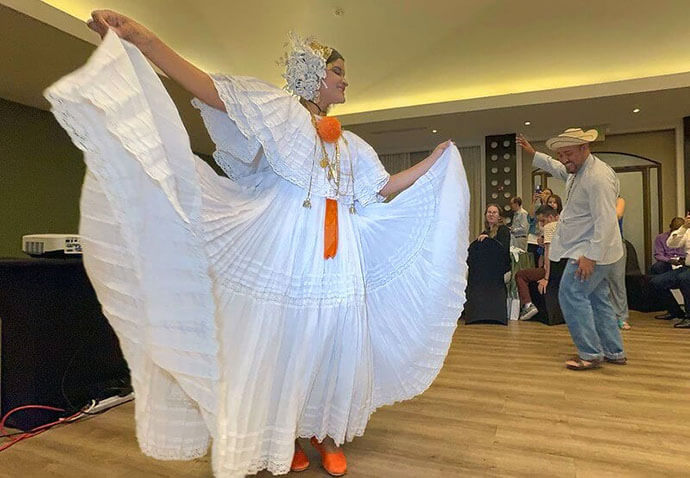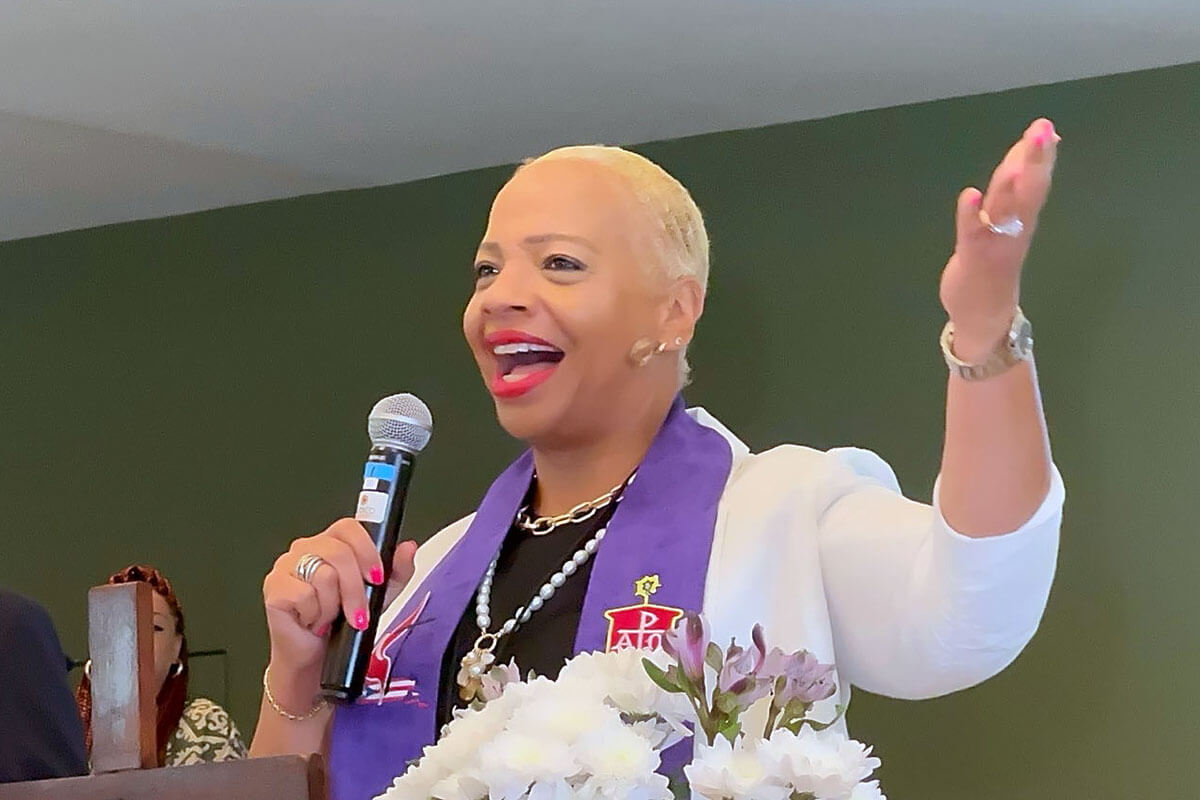
Key Points:
- A mission consultation for Latin America and the Caribbean brought together clergy and lay leaders from Methodist churches and ecumenical organizations across the Americas.
- The event, sponsored by the United Methodist boards of Global Ministries and Higher Education and Ministry, focused on identifying areas for joint work to strengthen the church’s mission on the continent.
- Working groups made proposals to develop strategies to build relationships and reaffirm the church’s role in addressing the social needs of the region.
Methodist churches across the Americas have written a new page in their missional history, following the conclusion of a mission consultation for Latin America and the Caribbean.
Eighty-six participants — 29 of whom were bishops or presidents — from 40 churches and ecumenical organizations attended the July 21-23 event. The episcopate of The United Methodist Church was represented by Bishops Tracy S. Malone, Minerva Carcaño, Hope Morgan Ward, Héctor Burgos-Núñez, Sue Haupert-Johnson, Ruben Saenz, Rosemarie Wenner and Sandra Steiner Ball.
Malone, president of the United Methodist Council of Bishops, highlighted the importance of the gathering as “a resource to strengthen the bonds of collaboration in the missional work of the church.”
On behalf of the council, Malone thanked the participants and organizers for the intense work carried out over the three days of the event.
“We have had great and important conversations about our churches and our people, in which we have frankly outlined the challenges for the development of the mission,” she said. “But we have also been able to envision solutions, and now it is time to continue working together on appropriate strategies.”
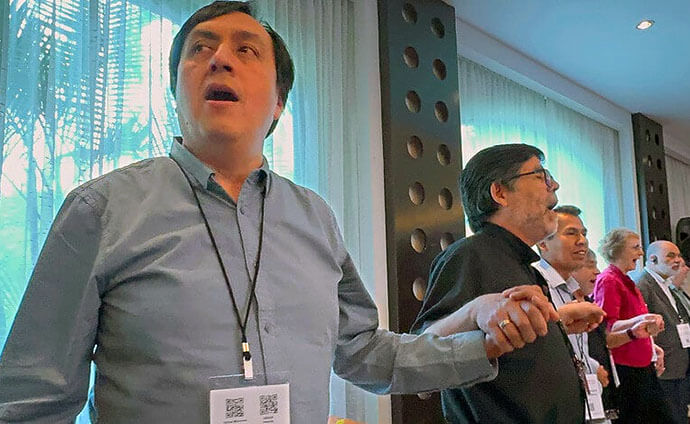
The Methodist churches on the continent — and throughout the world — are part of the body of Christ, and therefore “we are called to alleviate the suffering of people and advocate for justice and peace,” Malone said.
The consultation was sponsored by the United Methodist boards of Global Ministries and Higher Education and Ministry and included the participation and support of the autonomous Methodist churches of CIEMAL (Council of Evangelical Methodist Churches in Latin America and the Caribbean), the Methodist Church in the Caribbean and the Americas, the Methodist Church of Great Britain, and ecumenical organizations in the region.
The meeting focused on eight key areas: mission; youth and young adults; gender-based violence and child safety; theological, Christian and general education; climate justice and abundant health; poverty and migration; financial responsibility; and peacebuilding.
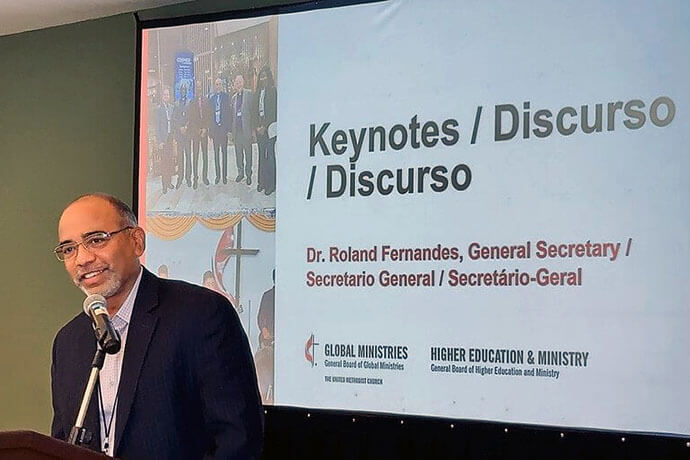
Roland Fernandes, top executive of both Global Ministries and Higher Education and Ministry, expressed the desire for a better mutual understanding of the different contexts of each church and the missionary work to be carried out.
“From the organizations I lead, we came to listen and learn from you, our Latin American and Caribbean mission partners,” he said.
“We have a clear interest in continuing the work we have been doing together, so in the coming days we will make available the documents that reflect this work.”
In recent years, mission relations have been affected by several factors, such as the COVID-19 pandemic, changes in leadership and legislation in some churches, and the changing political context in some countries of the region. The consultation was designed to be a reinvigoration of relationships, drawing on the work that has been taking place through other previous events.
Bishop Pedro Araúz Valdéz of the Evangelical Methodist Church of Panama said that the churches in the region “needed to meet face to face and speak frankly about our realities, in order to identify strategies and the important things that define us, to reinvigorate the development of the mission.”
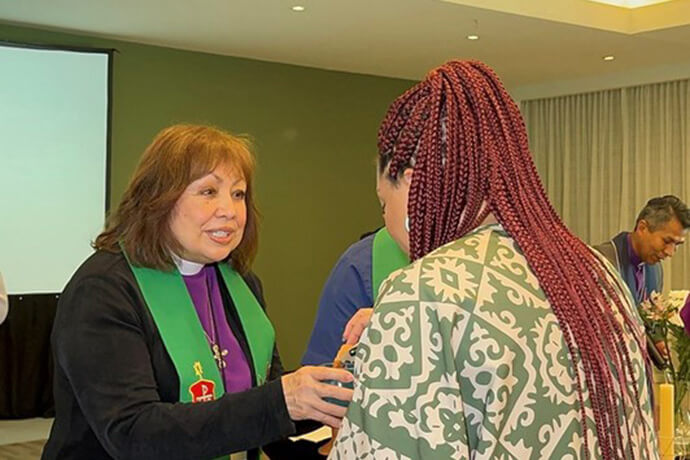
The sermon during opening worship was delivered by retired United Methodist Bishop Carcaño, leader of the denomination’s “Holistic Relationship Strategy” with the churches of Latin America and the Caribbean. She emphasized the importance of joining forces “to heed the call of our Lord Jesus Christ to the Church, to bring His message of mercy to a world that needs it more than ever.”
Several working teams were tasked with organizing the proposals made among delegates from the continent’s various churches to strengthen ties of cooperation and outline mission opportunities for the future.
Discussions about the mission emphasized the historical tradition of Methodism, along with its moral and theological integrity in missionary work. The strengths of that work are centered on the network of educational institutions, leadership training, ecumenical vocation and passion for service.
In contrast, weaknesses identified included a reactive attitude toward social needs, the low visibility of women in decision-making processes, the use of inefficient and unattractive communication models for youth, the lack of intergenerational mentoring and reduced opportunities for leadership with a new vision.
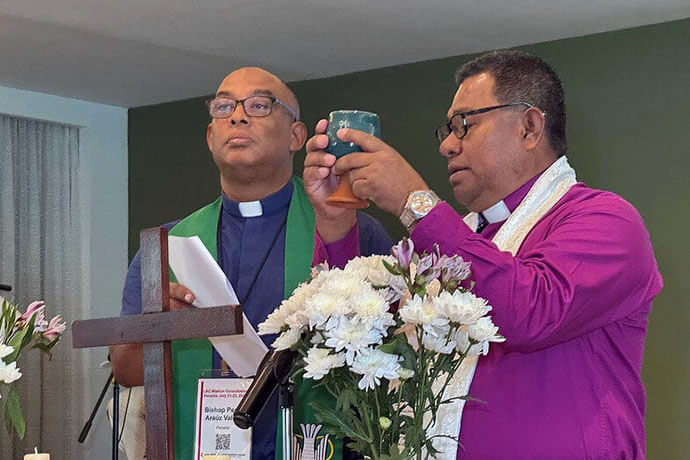
Regarding the opportunities that arise, the participants identified the advantages that digital communication platforms could offer, the interest of donors in integral mission projects and transnational human support networks generated by migration.
Likewise, challenges must be addressed: growth of fundamentalist movements, individualistic culture, fragmentation of ecclesiastical cooperation, immigration restrictions on the exchange of missionaries, and the disruption of humanitarian assistance in the face of increasing health crises, environmental degradation and violence.
Subscribe to our
e-newsletter
In addition to the topics that were the focus of the consultation, participants had the opportunity to raise other issues that were not addressed but are part of the needs of the churches in the region, such as:
- the need for clear positions against arms;
- restoring the public impact of the church’s action;
- deepening mutual relations among the continent’s churches;
- promoting ministry with Methodist men;
- ministerial care for elder adults;
- strengthening ecumenism and interreligious dialogue;
- addressing imbalances in gender relations and the different models of patriarchy;
- solidarity with churches facing difficulties in some countries;
- the role of the church in contexts where democracy and human rights are weakening.
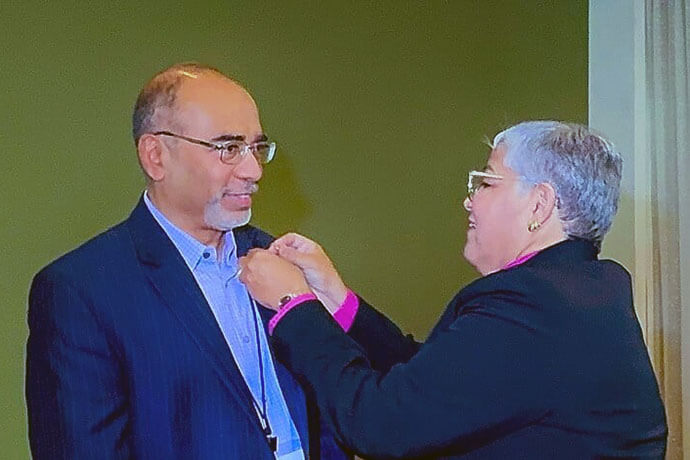
Fernandes added that the agencies will continue working with CIEMAL and its Council of Bishops and their counterparts in The United Methodist Church to further advance the implementation of strategies that respond to the new moment in the relationships among Methodist churches throughout the continent.
Bishop Lizzette Gabriel Montalvo of the Methodist Church of Puerto Rico emphasized that “holy conversations of great importance have been held, demonstrating a willingness to look with hope to a new moment in relations between the churches.”
“This is not just another meeting. This is a blessed moment that can be fruitful. I trust that in the near future we can return through connectionality as witnesses of God’s mission in all our contexts,” she said.
Vasquez is the team lead for Hispanic/Latino Partnerships for United Methodist Communications. Contact him at (615) 742-5470 or [email protected]. To read more United Methodist news, subscribe to the free UM News Digest.
